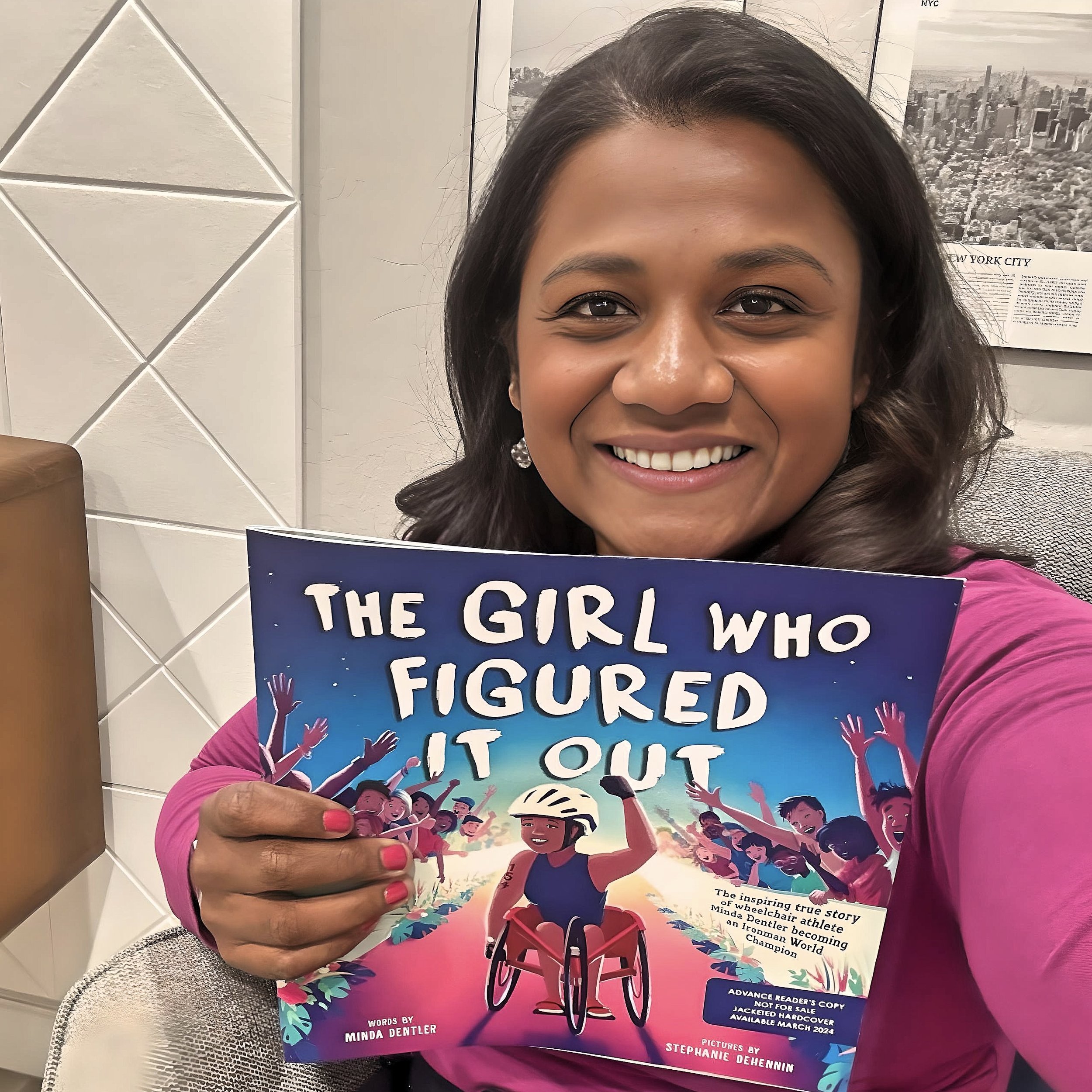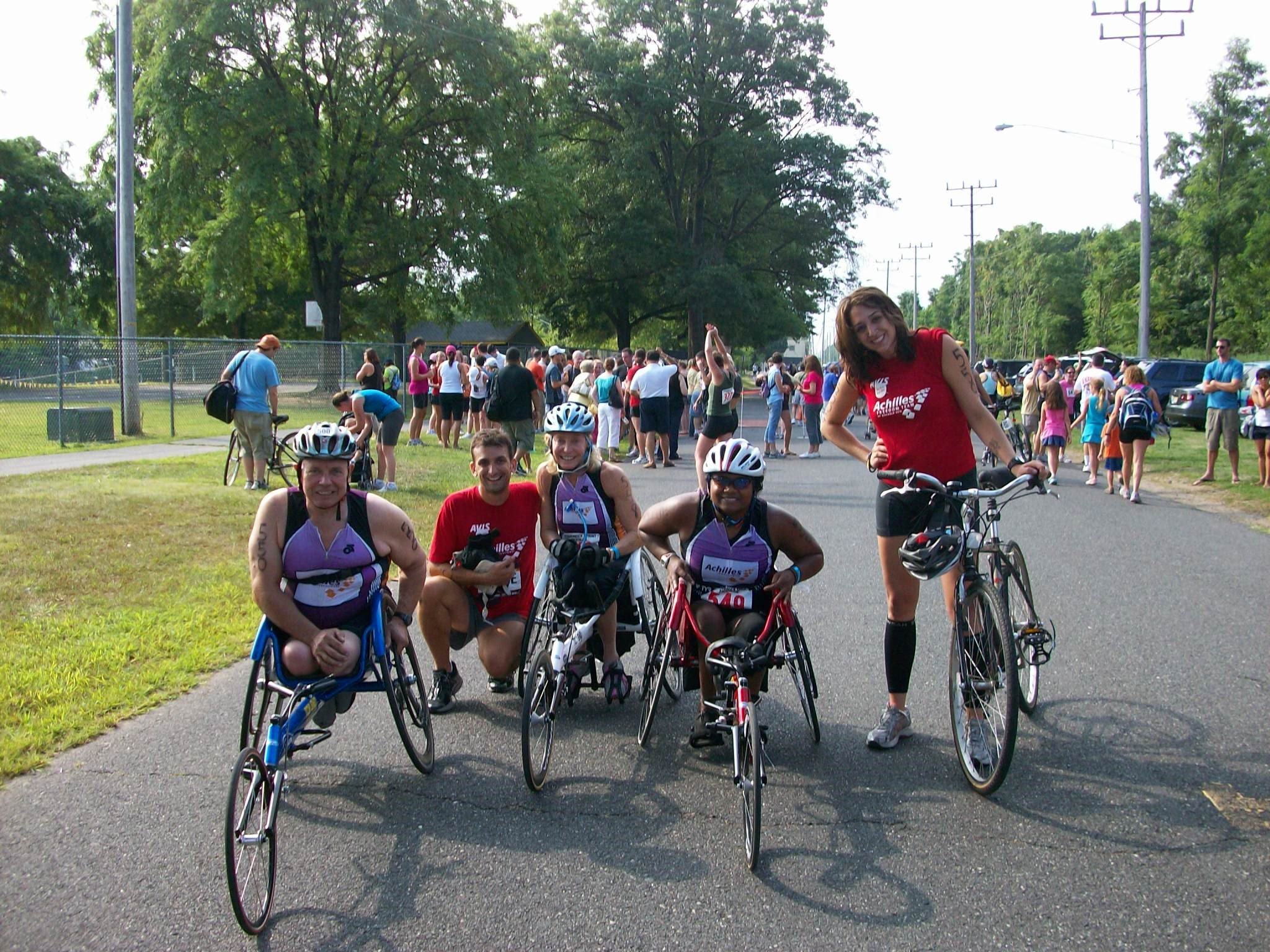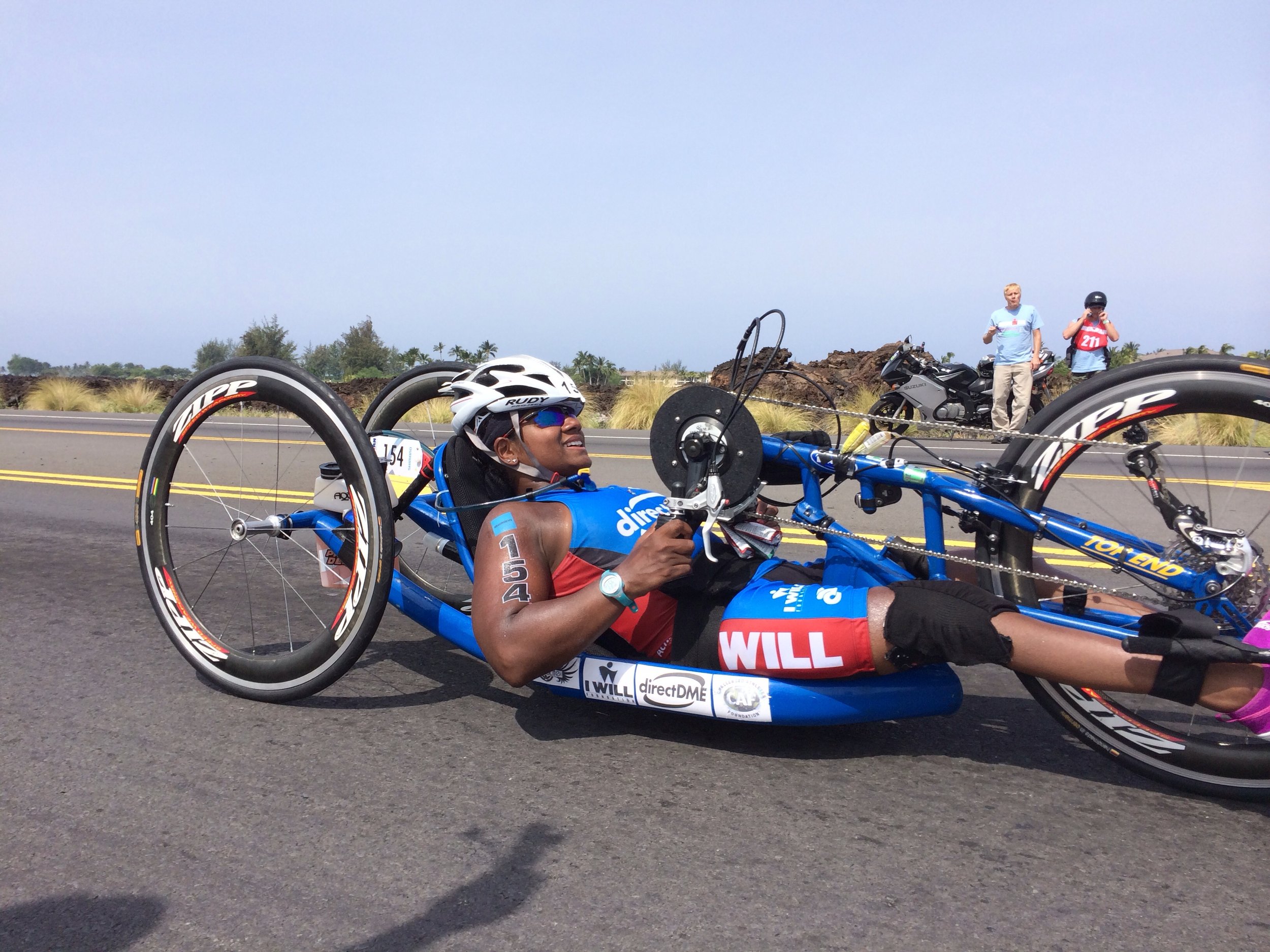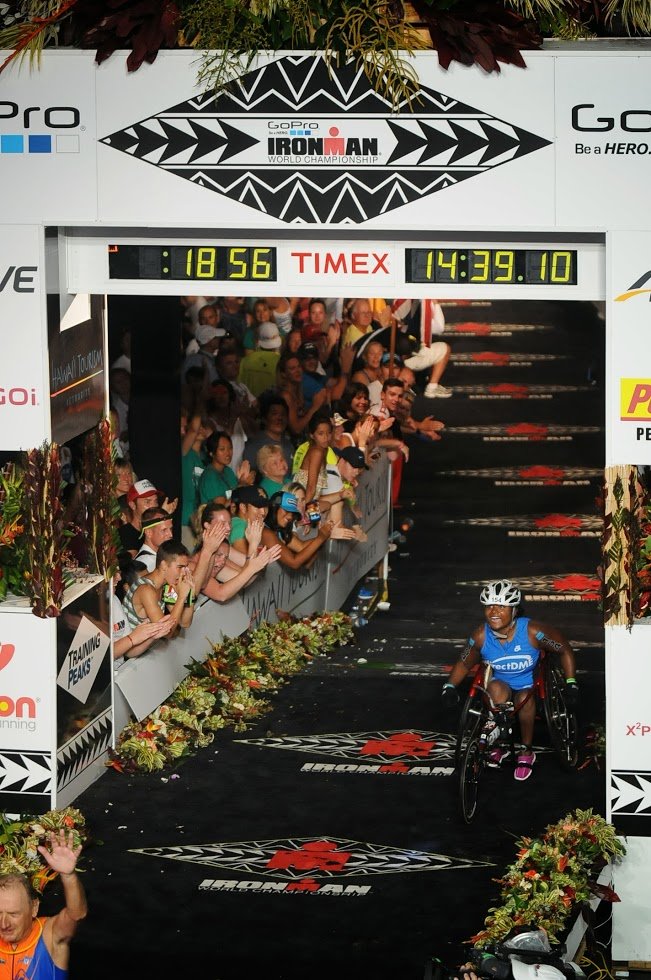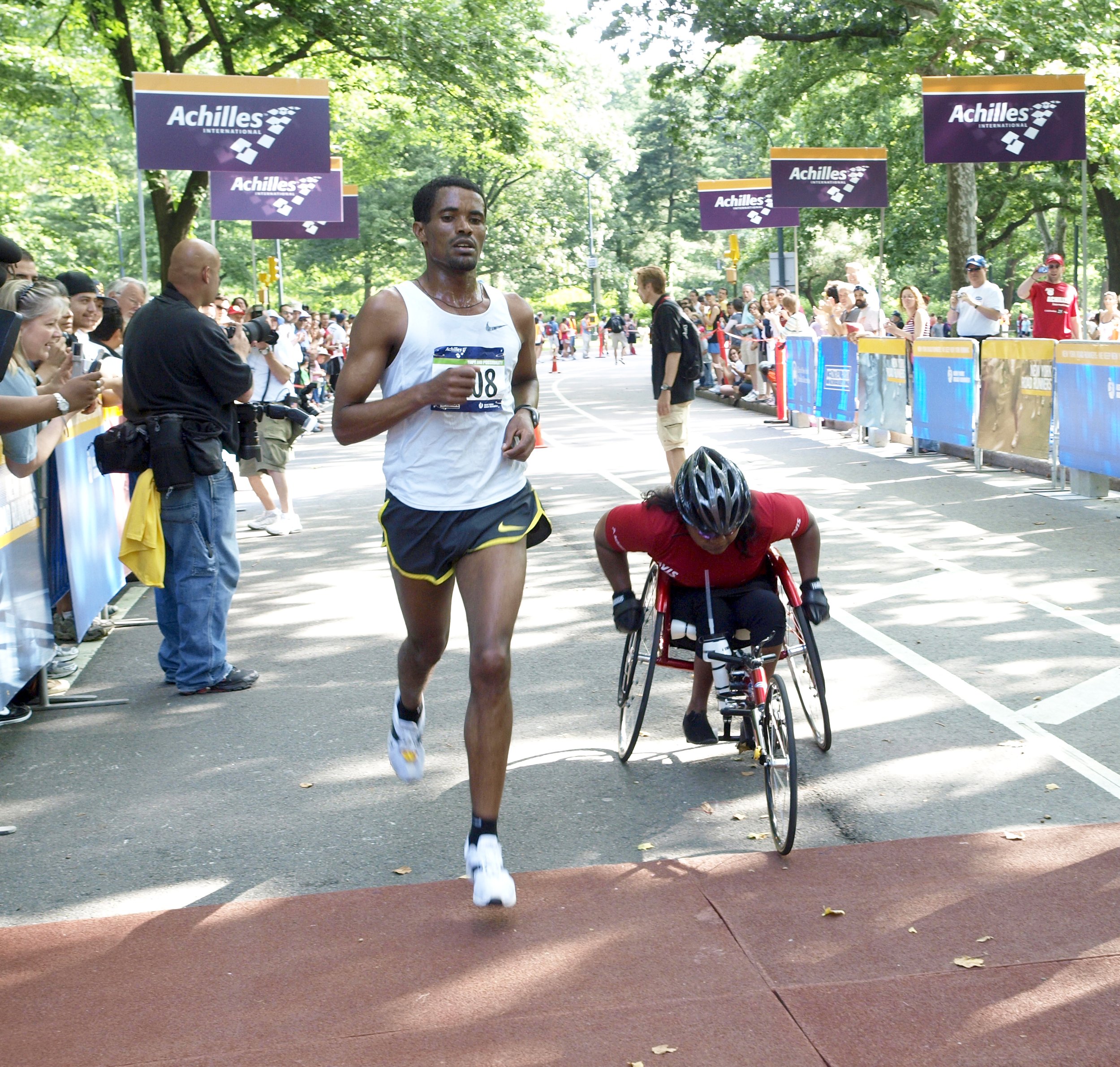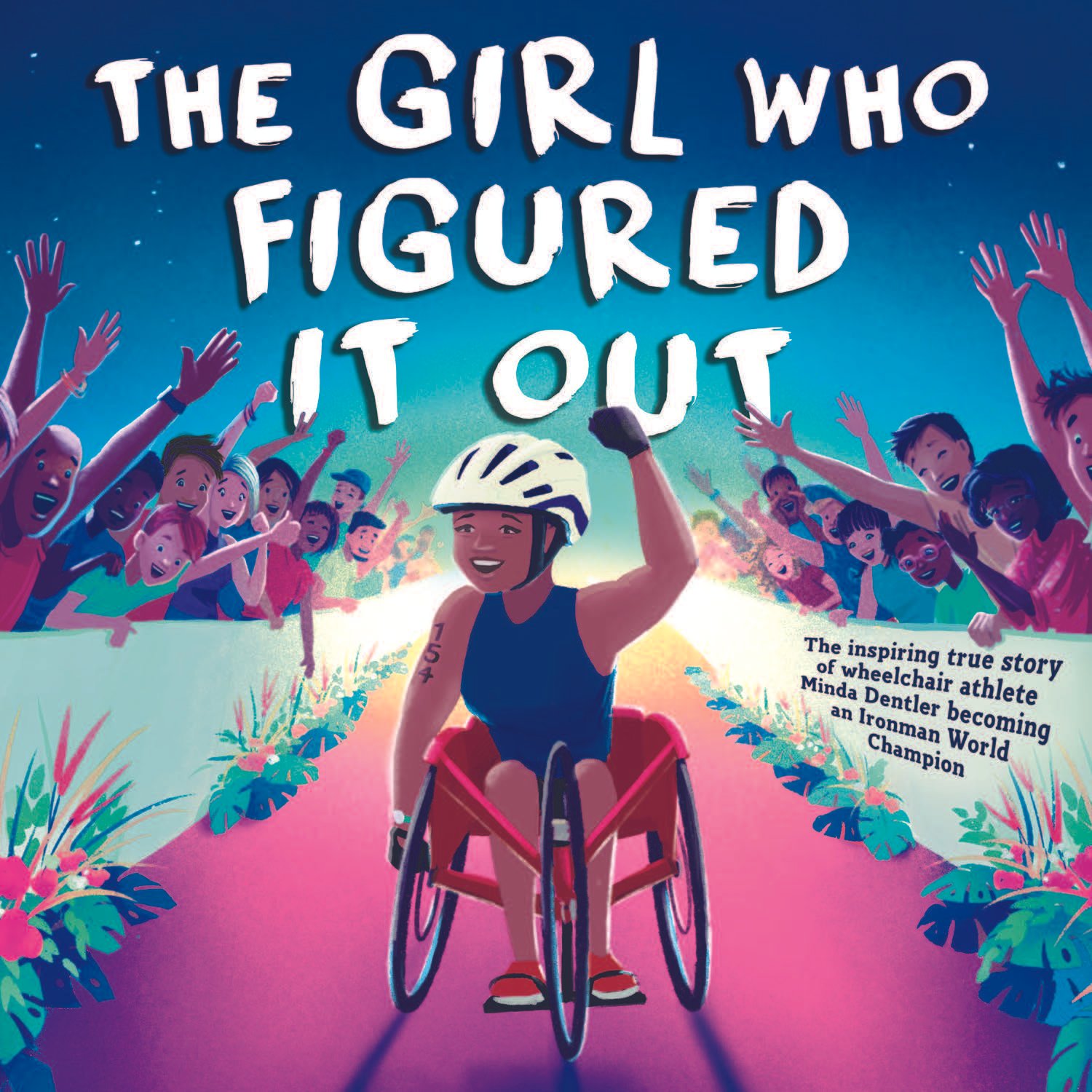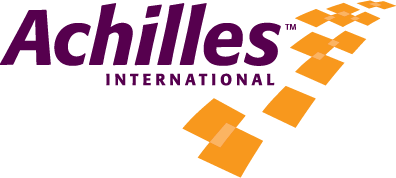IRONMAN World Champion Who Got Her Start at Achilles Publishes Children’s Book to Inspire Youth to Reimagine What’s Possible
When Minda Dentler first joined Achilles, she was not expecting her experiences to lead her to becoming the first female wheelchair athlete to conquer the IRONMAN World Championship.
Minda was diagnosed with polio when she was only six months old. A Mumbai, India native, she was adopted by American parents, and eventually moved to New York City. Minda soon found Achilles International and began handcycling in Central Park. It wasn’t until she began racing with TriAchilles that she not only discovered her true passion of competing in triathlons, but a new outlook on life as well.
Read a Q&A with Minda and learn more about how she went from training in the park to the podium.
How did you first get involved with Achilles and how did that experience lead to an IRONMAN World Championship?
“Growing up in a sports-loving family, I always wanted to be part of the action but my disability often left me on the sidelines watching while others competed. It was tough feeling like I was missing out on something I loved so deeply. However, everything changed when I moved to New York City after college. At 28, I discovered Achilles International, and that’s when my journey truly began. On my first day, the late founder, Dick Traum, provided me with a handcycle, and as I rode, I felt an exhilarating rush. The wind in my hair, the speed—I was hooked from that moment on.
Two years later, I joined the local Achilles group training for a triathlon and learned how to swim and push a racing wheelchair. Six months later, I crossed the finish line of the NYC Triathlon. It lit a fire within me and made me reach for more. It wasn’t easy, though. It took five years of relentless dedication, hard work, and the support of my community to reach my ultimate goal—the IRONMAN World Championship. Looking back, I’m filled with pride and gratitude for how far I’ve come. Achilles International not only gave me a chance to compete, but gave me the confidence to pursue my goals, no matter the obstacles.”
What inspired you to take on that massive challenge?
“Completing my first triathlon at age 30 was just the beginning of my journey towards something bigger. I attended a triathlon camp for athletes with disabilities and met Jason Fowler, a fellow athlete with a disability who had become an IRONMAN World Champion in the handcycle division. His story and his achievements deeply inspired me. I’ll never forget his words of encouragement, urging me to go after Kona [historic race] one day. His belief in me planted a seed of possibility in my mind, and I thought maybe I could do it, too. Joining the Asphalt Green triathlon club was another turning point for me. Surrounded by a community of like-minded athletes achieving great feats, I found the support and motivation to push myself further. With the guidance of a coach, I embraced the hard work and dedication needed for longer distance triathlons. Five years later, at the age of 35, I stood at the start line of the IRONMAN World Championship—filled with anticipation, nerves, and excitement, but above all, a belief in the power of dreaming big and never giving up.”
You mention the late founder of Achilles International, Dick Traum, in your new book. Why do you think it is important for children with disabilities to have someone to look up to and learn from?
“As a person with a physical disability, I’ve come to realize the importance of having role models who share similar challenges and accomplishments. Witnessing someone facing the same hurdles as me, yet achieving significant goals sparks a sense of possibility and expands my own thinking of what I can achieve. I remember watching wheelchair athletes racing in running events as a child, never imagining that one day I could do it too.
Similarly, when I watched the IRONMAN World Championship on TV with my dad, it felt like a distant dream, something that seemed out of reach for someone like me. However, when I saw someone with a disability like mine not just participating but excelling in the IRONMAN, it was a powerful realization. Their determination and resilience showed me that it was possible for me too.”
Why do you think it’s important for children without disabilities to be exposed to a story like this?
“When I think about my daughter and her peers, I think it’s important to expose them to different people and perspectives as it helps to foster empathy and understanding. Books are a fantastic way to achieve this. They allow kids to step into someone else’s shoes and see the world from a new perspective. By reading stories of triumph over adversity, children learn that everyone faces challenges, but we all have unique strengths that make us special. When we share stories like mine, we give them the tools to become agents of positive change, where everyone feels valued and respected, no matter their differences in background or abilities.”
What advice would you give to other athletes with disabilities who want to “conquer their "Ironman?”
“Embarking on the journey to conquer any significant goal, especially when you live with a disability, can seem overwhelming, but through my own experience, I’d share the following: First, set your goal and take that initial step, no matter how small. Develop a plan, break it down into manageable steps, and enlist the support of those who believe in you. Consistent effort is key, challenges are inevitable – embrace them as they are opportunities for growth. Never lose sight of the finish line and persevere through tough times. Above all, find joy in the journey, celebrate the small wins along the way. The reality is not just about reaching your end goal, it’s about who you become along the way that matters.”
Minda’s new book, The Girl Who Figured it Out, is available for pre-order now.
